CITTA 8th ANNUAL CONFERENCE ON PLANNING RESEARCH / AESOP TG Public Spaces & Urban Cultures

BOOK OF PROCEEDINGS is available for download 
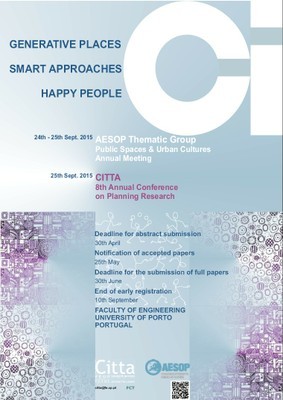
‘BECOMING LOCAL – Generative places, smart approaches, happy people’– is the topic of the next conference organized by CITTA - Research Center for Territory, Transport and Environment, held at the Faculty of Engineering, Porto University on the 25th of September 2015.
This year's edition will be joined with the AESOP Thematic Group on Public Spaces and Urban Cultures event taking place on the 24th and 25th September, 2015.
The conference is supported by the Municipality of Porto, that will be organizing the Fieldwork and Workshop on the 24th September.
Theme of the conference
Along the decades, planning has been evolving from expert-led or top-down approaches to more community-led, interactive and participatory approaches, valuing the social capital of local communities and putting citizens at the centre of planning processes. Research has been emphasizing the importance of local contexts to set goals and establish priorities through adaptive learning processes. Additionally, it is relevant to identify places here understood as ‘generative places’, where the emergence of local initiatives based on knowledge-based creativity and interactive learning occur. In other words, places should demonstrate the capacity to flourish and reinvent themselves - hopefully revealing their true genius loci, meaning the location’s unique character - most of the times through spontaneous processes based on community action and groups of individuals' initiatives.
BECOMING LOCAL means that the contemporary rationale should zoom in to ‘local’ spaces and places, policies and practices, and everyday life; this way, the human capital (citizens and their social and cultural background) play an important role as key agents of urban change and, in particular, of defining what is meaningful within the city. The understanding and the production of these meaningful places is, nowadays, increasingly confronted with diversified real (material) and virtual (immaterial) spheres of urban spaces, either private or public. Planning has to be prepared to embrace both these spheres of the city, as they both contribute to the construction of meaningful places.
Moreover, the idea that the use of technological or smart driven approaches in planning processes can, firstly, facilitate political discourse and participation by strengthening the link between citizens and governors, and secondly, better respond to people needs and improve the quality of life of citizens, has been around in different contexts and dimensions. Several projects, applications and approaches are making evident that we are forced to live and use technology in our daily activities and inevitably in the city arena. Technology affects our behaviours and the way we move and live in urban areas at various levels. However, regarding the access to (new) technologies (transports, communication/ICT networks, etc.), a certain asymmetry still exists due to the vulnerability of some communities and deprived families. Also, the operative structures of public institutions and private representative bodies of local people interests are often different. Additional, in some regions, physical distance is not yet counterbalanced with technological proximity. Thus, participatory planning processes may be less efficient and even threatened. Though, it is imperative to investigate and discuss how these technological tools can lead to the idea of what is usually designated as e-inclusion and most importantly how it can promote, ultimately, social cohesion and integration.
Intensifying the role of citizens by, either community-led, interactive, or participatory approaches, is consensually argued as responding more directly to people’s needs and aspirations. Nonetheless, the level of quality of life, and even the level of happiness, is far from being truly and completely achieved. Urban planning has been concerned in creating better places, but nowadays is also focusing in increasing the levels of happiness, following the wider trend in discussing what makes people happier.
In the Conference some raising questions are expected to be discussed:
What are the processes that make some places flourish, and others not? What initiatives are at the bottom of the process?
What are the roles of planning and design in those spontaneous processes of urban transformation? How is the articulation and mediation of the different agents/stakeholders in the making and along the process?
How can the concept of ‘generative place’ be further defined and explored (based on the variety of real cases)?
Do these generative places contribute more to the meaningfulness of the city?
What are the emerging research methodologies and positions in the studies of generative places? What are the problems of being at the cutting edges?
What are the main technological tools that are being used in urban spaces (mainly, public open spaces, transports and mobility)?
Do they have been contributing to increase social equality, creativity, cohesion and integration? If not, what are the main problems? Is e-inclusion a determinant key in reaching more equitable and liveable places?
Keynote speakers
Ali Madanipour - University of Newcastle, United Kingdom / Member of AESOP Thematic Group - Public Spaces & Urban Cultures
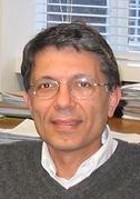
Ali Madanipour is Professor of Urban Design and the Director of Global Urban Research Unit at Newcastle University (http://www.ncl.ac.uk/guru/). He has studied (MArch, PhD), practised, researched, and taught architecture, urban design and planning, winning design and research awards, and working with academic and municipal partners from around the world. His work has been translated into French, German, Italian, Japanese, Mandarin, Persian and Spanish. His visiting positions include the City of Vienna Senior Visiting Professor at the Technical University of Vienna (2010), the Wits-Claude Leon Distinguished Scholar at the University of Witwatersrand, Johannesburg (2011), and Visiting Professor at the Polytechnic of Milan (2015).
Carlos Fortuna - University of Coimbra, Portugal
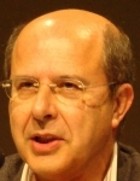
Carlos Fortuna is Professor of Sociology at the Faculty of Economics (University of Coimbra). Senior Researcher at the Center for Social Studies. Scientific Coordinator of the Masters and Doctoral Programmes in "Cities and Urban Cultures" (University of Coimbra).
Areas of interest: Urban cultures; Tourism, heritage and memory; Identities and city images. Author of various books. His most recent publication is "Simmel: A Estética e a Cidade" (Coimbra, Imprensa da Universidade,2010) (Org.).
Sabine Knierbein - Vienna University of Technology, Austria
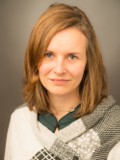 Sabine Knierbein (DI (FH), Dr. phil.) is Assistant Professor for Urban Culture and Public Space at the Faculty of Architecture and Planning, TU Wien, Austria, where she also directs the Interdisciplinary Centre for Urban Culture and Public Space at the Department for Spatial Planning. She is founding member of the AESOP Thematic Group for Public Spaces and Urban Cultures and has worked as expert member of conference advisory boards in several countries (Austria, Belgium, France, Germany, Portugal, Turkey, a.o.) and as expert on public, civic and social innovation both at municipal and national policy design levels. Sabine has worked on public spaces and urban cultures for fifteen years, and has published in English, German, French, Spanish and Portuguese. Sabine has co-edited Public Space and the Challenges of Urban Transformation in Europe (2014) and Public Space and Relational Perspectives – New Challenges for Architecture and Planning (2015), both with Routledge. She has worked as referee for several peer-reviewed journals (JOLA, IPS, Sociology Journal, Urban Studies, Spaces and Culture) and is member of different professional networks relating to urban studies AESOP, ESA, INURA and EURA.
Sabine Knierbein (DI (FH), Dr. phil.) is Assistant Professor for Urban Culture and Public Space at the Faculty of Architecture and Planning, TU Wien, Austria, where she also directs the Interdisciplinary Centre for Urban Culture and Public Space at the Department for Spatial Planning. She is founding member of the AESOP Thematic Group for Public Spaces and Urban Cultures and has worked as expert member of conference advisory boards in several countries (Austria, Belgium, France, Germany, Portugal, Turkey, a.o.) and as expert on public, civic and social innovation both at municipal and national policy design levels. Sabine has worked on public spaces and urban cultures for fifteen years, and has published in English, German, French, Spanish and Portuguese. Sabine has co-edited Public Space and the Challenges of Urban Transformation in Europe (2014) and Public Space and Relational Perspectives – New Challenges for Architecture and Planning (2015), both with Routledge. She has worked as referee for several peer-reviewed journals (JOLA, IPS, Sociology Journal, Urban Studies, Spaces and Culture) and is member of different professional networks relating to urban studies AESOP, ESA, INURA and EURA.
Sako Musterd - University of Amsterdam, Netherlands
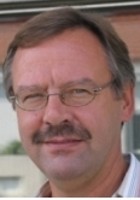 Sako Musterd is Professor of Social Geography / Urban Geography. Some recent research on Urban Geography focus: international comparative analyses of dynamics in metropolitan areas; neighbourhood effect studies; spatial segregation and integration; conditions for the creative knowledge city. Participated and participates in large European research programmes: URBEX (co-ordinator); COST CIVITAS; UGIS; RESTATE; Neighbourhood Trajectories; BSIK-ICES-KIS; ACRE (co-ordinator); Social Polis (co-coordinator); COST CIRES; and a range of NWO (Dutch Research Council) programmes, most recently in Urban Regions in the Delta and JPI Urban Europe. Co-operations with a large number of other universities in the framework of European research programmes and beyond.
Sako Musterd is Professor of Social Geography / Urban Geography. Some recent research on Urban Geography focus: international comparative analyses of dynamics in metropolitan areas; neighbourhood effect studies; spatial segregation and integration; conditions for the creative knowledge city. Participated and participates in large European research programmes: URBEX (co-ordinator); COST CIVITAS; UGIS; RESTATE; Neighbourhood Trajectories; BSIK-ICES-KIS; ACRE (co-ordinator); Social Polis (co-coordinator); COST CIRES; and a range of NWO (Dutch Research Council) programmes, most recently in Urban Regions in the Delta and JPI Urban Europe. Co-operations with a large number of other universities in the framework of European research programmes and beyond.
Organizing Committee
 |
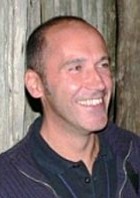 |
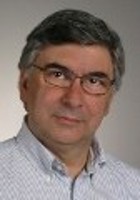 |
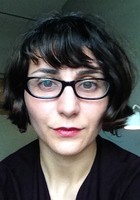 |
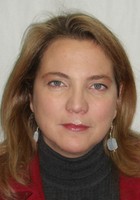 |
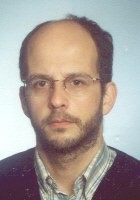 |
|
| Sara Cruz | Fernando B. Alves | Paulo Pinho | Burcu Yigit Turan | Gabriella E. de Vita | Paulo Conceição | |
| (Chair) | (Chair) | (Director of CITTA) | (AESOP TG Representative) |
(AESOP TG Representative) |
||
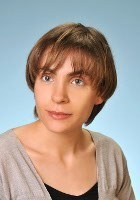 |
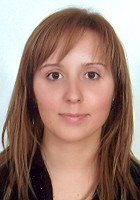 |
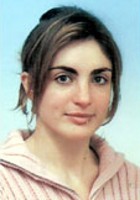 |
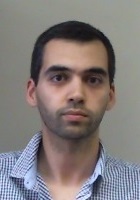 |
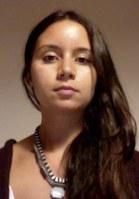 |
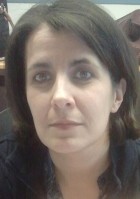 |
 |
| Ana Martins | Claúdia Correia | Lara Mendes | Miguel Lopes | Rita Vaz | Luisa Batista | Diana Silva |
Scientific Committee
Aleksandra Djukic, Ali Madanipour, Álvaro Seco, António Pais Antunes, Burcu Yigit Turan, Ceren Sezer, Fernando Brandão Alves, Gabriella Esposito de Vita, Isabel Breda Vazquez, Paulo Pinho, Sabine Knierbein, Sara Santos Cruz
